
By Julia Flaherty originally published on the Ledgeview Partners blog.
Ledgeview Partners Joins the Pledge 1% Movement, Commits to Compassion and Helping to End Child Poverty
Ledgeview Partners Leverages 5% of its Net Income to Improve Global Communities
Appleton, WI, June 22, 2018 – Ledgeview Partners announced today that it has joined the Pledge 1% program, a corporate philanthropy movement dedicated to making the community a stakeholder in every business.
Spearheaded by Atlassian, Rally, Salesforce, and Tides, Pledge 1% empowers companies to donate 1% of their product, 1% of equity, 1% of profit or 1% of employee time to improve communities around the world.
Ledgeview Partners has joined an impressive network of entrepreneurs and companies across the globe that have committed to philanthropic efforts through the Pledge 1% movement. By donating 5% of its net income, Ledgeview Partners is demonstrating its commitment to philanthropic leadership.
Ledgeview Partners has focused on the value of giving back to communities since its inception more than 10 years ago.
“At the beginning of Ledgeview Partners, one of our goals was to make a difference in our communities, not just locally, but globally,” says Doug Fissell, Co-Founder and President of Ledgeview Partners.
“As an organization, we believe in giving back; it is one of the pillars of Ledgeview Partners’ business philosophy. Through our donations, we strive to help end child poverty.
We are proud to align with Salesforce’s Pledge 1% philanthropic model. Our give-back initiatives have helped guide our team with a spirit of charity and being a part of something bigger than a workplace or company — compassion is who we are.”
 Image Courtesy of Compassion International
Image Courtesy of Compassion International
Lucie Schulze, General Manager at Ledgeview Partners, was with Ledgeview Partners from the beginning. She reflects on the company’s work with Compassion International and unwavering commitment to charity since then.
“At Ledgeview Partners, we truly believe in our motto of ‘transforming business, one relationship at a time’,” says Schulze.
“Though we may not have the direct resources to end poverty ourselves, we can contribute to organizations that do, between the Pledge 1% program and Compassion International.
Compassion International is a nonprofit organization that provides resources and opportunities to children in third-world countries with the education, food, mentorship and medical care they need to survive. We are proud to sponsor these children to give them restored hope for bright futures.”
Salesforce excites over Ledgeview’s involvement.
“Salesforce is dedicated to changing the way companies think about corporate philanthropy,” says Suzanne DiBianca, EVP of Corporate Relations and Chief Philanthropy Officer at Salesforce. “We’re excited that Ledgeview Partners is joining us in giving their resources back to the community. This is another great example of the power that business has to create change in our communities.”
Beyond the company’s commitment to charity, Ledgeview’s primary business is with helping customers achieve above and beyond CRM, Sales, Customer Service, and Marketing solutions.
Ledgeview Partners is a business and technology consulting company who partners with organizations to transform sales, marketing, and customer service operations and processes that are supported by core technologies including Customer Relationship Management (CRM) and Marketing Automation.
Ledgeview Partners’ consultants combine savvy business intellect with a strong technical aptitude to provide solutions that extend well beyond software implementations. It’s about building relationships, transforming business, and delivering phenomenal customer experiences.
ABOUT PLEDGE 1%
Pledge 1% is an effort spearheaded by Atlassian, Rally, Salesforce, and Tides to accelerate their shared vision around integrating philanthropy into businesses around the world. Pledge 1% encourages and challenges individuals and companies to pledge 1% of equity, profit, product, and/or employee time for their communities because pledging a small portion of future success can have a huge impact on tomorrow. Pledge 1% offers companies turnkey tools and best practices, making it accessible for any company to incorporate philanthropy into their business model. To learn more or to take the pledge, visit www.pledge1percent.org.


Originally published by CAF America.
The China Overseas NGO Management Law, officially the “Law of the People’s Republic of China on Administration of Activities of Overseas Nongovernmental Organizations in the Mainland of China” went into effect January 1, 2017. The law requires that foreign NGOs coordinate their efforts with the Ministry of Public Security (MPS) and provides the framework within which they can continue their activities in the country through two ways: opening a representative office in China or applying for a temporary activity license.
When the law first came into effect there was a lack of detailed guidance on how to comply with the requirements of the law. This led to confusion amongst international philanthropists and grantmakers about how the new regulation would affect their charitable efforts within China. While the government has not yet officially clarified all details regarding implementation, over the past several months it has become clearer how NGOs can become compliant either by opening a representative office in China or applying for a temporary activity license. These two compliance measures enable foreign NGOs to plan their strategy for continuing their work in China. To date, some estimates from The Diplomat and The China NGO Project say that 90 to 250 foreign NGOs have successfully registered their offices in China. The number of temporary activity licenses that have been released is unclear, The China NGO Project estimates there have been less than 150 to date.
What is clear, however, is that donors from the United States can continue to support registered Chinese NGOs through intermediary organizations or through direct grantmaking if that is what they would prefer. Intermediary organizations may choose either option to fund charitable efforts in China, i.e. opening a representative office in the country or working with a “Chinese Partner Unit” and obtaining a temporary activity license. Both avenues are complicated and burdensome on the intermediary, however, a temporary license provides more flexibility for the donor.
When giving to an organization that has a representative office registered in China, the law requires that the registered office submit its entire activity plan by December 31 for the following year. This means that donors to this organization must know what exactly they want to fund a full year in advance and must provide this information to the registered office in due time.
The alternative, providing funding to an organization that works through temporary activity licenses, does not require this level of planning. The donor is therefore able to give at any time during the year, without the burden of 12 months of advance planning. Instead, while obtaining temporary activity licenses requires significant amount of resources (the prescribed documentation is extensive and requires close coordination with the “Chinese Partner Unit”), the temporary license allows for far more flexibility for both the Chinese Partner Unit and the donor.
The following steps should be taken by grantmakers and others applying for a temporary activity license. Please note that this list is not exhaustive, and it may differ based on region of China. Requirements may also change over time. Thus, it is important that you engage with your Chinese Partner Unit directly to ask them what is needed in order to apply before you begin this process.
- The funder should first obtain the following documents
- 501(c)(3) Determination Letter – English and Chinese Translation (may need an original copy from the IRS)
- Articles of Incorporation – English and Chinese Translation (these must be originals from your state of incorporation and require an apostille)
- A document certifying the source of and purpose of funds
- The grant agreement with the intended Chinese Partner Unit
- All of these documents, including an application for notarization, must be submitted to the Chinese Embassy for certification in-person. However, the Chinese Embassy will not certify the documents unless they have already been certified by the U.S. Department of State Authentications office.
- After approximately 10 days, the funder must return to pick up their notarized documents from the Embassy and proceed to coordinate with the Chinese Partner Unit to complete the license application process.
Given that each grant must go through a process similar to that described above, financial and staff costs are burdensome but not prohibitive.
Want more? Listen to our podcast to learn more about the China Overseas NGO Management Law
Cloud Co-op joined the Pledge 1% movement with a commitment to pledge 1% of our profit and time to charitable causes in our community.
Our Pledge 1% motto, “Plant seeds to grow where you live so others can benefit from you being there.”
We believe that our success is tied to our local community and that is why we chose to donate time and resources to helping Operation Supply Drop, a local Austin area Non-Profit.
The fact that Operation Supply Drop works to serve military members was a key determiner in our decision to help their organization.
Cloud Co-Op is a Service Disabled Veteran Owned Small Business, founded by David Franklin, our CEO who served 8 years in the United States Navy.
By leveraging twenty years of corporate experience, and twelve within the Salesforce eco-system, David has been able to build an organization that focuses on mentoring and coaching veterans into a certified business consultant career. “In doing so, the veterans connect to a meaningful post-military purpose, receive valuable real world experiences, and become the heartbeat of our mission,” says David. On a mutual understanding the clients in turn reduce implementation and development cost, ensure governance controls, user adoption and strategies for growth.
“As conflicts in various parts of the world end, our soldiers return home to a different kind of battle field – one of a virtual composition surrounded and fortified by a concrete jungle with its own unique set of rules and challenges. While a war veteran may be able to adapt and survive under the most unbearable conditions, chances of survival in the corporate world however are few and far between.” The idea of bridging this gap between the corporate world and the transitioning veterans was what motivated David Franklin, a former navy veteran to start Vets2Cloud.
While Salesforce is a common tool today, it cannot be utilized effectively in a corporate setting without years of corporate experience and further certifications. This hinders the veterans from using their newly earned certifications as they are often viewed simply as providers of pro-bono work for nonprofits. Cloud Co-Op helps the veterans get around this obstacle by incorporating a “Warriors” apprenticeship program called Vets2.Cloud which allows experienced persons in corporate roles to give back in group training sessions in addition to its own mentoring and coaching. Cloud Co-Op also reinforces a training program provided by Salesforce called Trailhead which incorporates gamification and applies these skills to much-needed real working situations in the field.
A message from Cloud Co-Op’s CEO: David Franklin
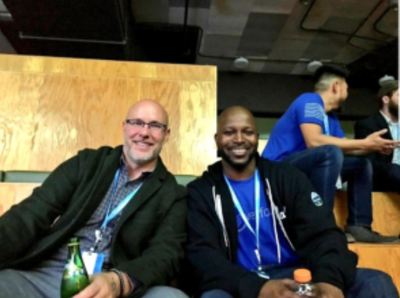
I started my military career prior to entering my senior year of high school (John F. Hodge, St. James, Mo). I enjoyed 8 years in the Navy as a Radioman. I didn’t have the assistance during my transition which is available today. That would have been amazing. There are many great organizations helping now. I’ve transitioned without it, I know first hand how difficult it can be. I entered the military with what is described as complex PTSD and my tours only supported the behavior and shielded me for many years. I was living my life on auto-pilot. Since then, I’ve worked through corporate roles from Service to Sales to Marketing over 19 years. I found areas to excel in the military and in those corporate positions. I’ve experienced great highs and extreme lows during those same time frames and now I am here to help others succeed.
It is now, with my military and corporate experience, that I return my service to the community from which I was given my start. I often wonder how many Veterans entered the military as I did or lived without knowing important values or behaviors that impacted them for too long. Having a new understanding and finding a purpose to serve my fellow Veterans, I created Vets2Cloud and Cloud Co-Op. I believe Veterans need more than training and more than an opportunity to work in a corporate role, they need real work experience with mentoring and coaching that allows them to become consulting professionals or business owners. Most importantly, as I have learned, we can address their personal needs so they experience the freedom to move forward.
Many people, specifically non-Veterans have joined my cause to support the Veterans transition. I don’t stand alone and I am very grateful for their service and commitment to Cloud Co-Op. As we grow and partner with other organizations and source work for the Veterans, I want to thank these companies in advance for working with us.
Cloud Co-Op expands Vets2Cloud™ Apprenticeship service to include Military Veteran Staffed Help Desk
Cloud Co-Op is a Registered Salesforce Consulting Partner providing Salesforce business consulting services for clients wishing to evolve their business processes into the cloud – is expanding its commitment to helping military veterans transition into the workforce, through its Vets2Cloud™ apprenticeship program that provides on-demand, fractional support to Salesforce clients. This help desk is staffed by former military veterans looking to transition into full-time careers as Salesforce administrators and developers.
“Our goal is to make the transition from military to civilian (corporate) life a little easier. As these veterans go from boots on the ground to boots in the cloud,” says Cloud Co-Op founder and CEO David Franklin, who happens to be a Service Disabled US Navy veteran.
Vets2Cloud is an apprenticeship program under the mentorship and coaching leadership of senior consultants at Cloud Co-Op and supporting entities. In co-operation with Veteran Service Organizations (VSO) like VetForce, Jewish Vocational Services and the Merivis Foundation, transitioning veterans and spouses are able to obtain Salesforce certifications before they enter the Vets2Cloud™ Apprenticeship program for advanced job readiness skills.
Once qualified veterans finish their initial training with the VSO, they have the opportunity to continue to advance their careers by receiving on-the-job training, and being paid to provide support to Salesforce customers facing real-world business challenges for companies with no dedicated resource or an admin requiring fractional on-demand support.
Service and Support That Matters
All of our clients salesforce support teams are staffed in-part by service minded military veterans and salesforce certified administrators that act as an extension of a company’s existing team.
Businesses get real-time, proactive support from a US based team of Salesforce certified admins capable of handling any technical questions and product support related issues. And military veterans get real-world experience, while getting paid and learning skills that lead to future careers in the Salesforce ecosystem.
The Road Ahead
Established in 2015, Cloud Co-Op intends to become a strategic, or Platinum business partner with Salesforce.com by uniting small firms nationally that function as one to support the growing eco-system. By doing so, Cloud Co-Op will have the technical capabilities of many firms which in turn can be translated into their growth on a substantial scale. “We will have the strength of many, while contributing to the growth and success of all. We are many members but one body that allows for many specialties and client opportunities. In doing so, our mission will flourish and our veterans will grow into leading consultants and future employees within the workforce,” reiterates David. In the next five years Cloud Co-Op looks for 20 small firms and 100 veterans to join their group.
Quote from a graduate of the Cloud Co-Op Apprenticeship Program:
“Cloud Co-op has been one of the most rewarding experiences of my life. My transition from the military to the civilian world has been a challenge. David and his staff have provided me with an opportunity to start a wonderful career as a Salesforce Consultant. The training has been top notch, with plenty of resources and staff that are more than willing to help you reach you full potential. It is truly amazing! Cloud Co-op shows great appreciation for Veterans and their service for our nation. It makes me very proud to be apart of such a great organization. – Sheldon Simmons, US Navy, Salesforce Certified Consultant.
Originally posted: November 28, 2017
Originally published by Samanage.
Samanage, a Service Success Company, today announced that they will partner with Make-A-Wish, a Samanage customer, at Dreamforce 2017.
Samanage will donate $10,000 to Make-A-Wish Eastern North Carolina, which is local to their Cary, North Carolina headquarters, with $1 donated for each attendee that is scanned at one of the Samanage booths and $5 donated for every on-site survey that is completed during the event.
Samanage made a Pledge 1% commitment earlier this year, joining hundreds of other organizations in the corporate philanthropy movement that’s dedicated to making the community a stakeholder in every business. Social responsibility has always been a key part of Samanage’s culture, and through Pledge 1%, Samanage promised to dedicate at least 12 volunteer hours per employee annually to causes that make a measurable difference in children’s causes.
Following Dreamforce, Samanage’s donation to Make-A-Wish will fund the wish of a local child with a life-threatening medical condition. Make-A-Wish of Eastern North Carolina covers 49 counties and grants wishes to children between the ages of 2.5 to 18. Since its founding in 1986, the chapter has granted wishes to more than 3,400 kids.
Comments on the News
“At Samanage we are deeply committed to giving back to the communities we operate in. By sponsoring Make-A-Wish, Samanage is strengthening its commitment to improve the lives of children in our community,” said Doron Gordon, founder and CEO, Samanage. “As a long-time Samanage customer, Make-A-Wish and it’s efforts hold a special place in our hearts. As we donate a dollar to Make-A-Wish for every scan at our booth, we are excited to give attendees of Dreamforce the opportunity to be a part of changing a child’s life for the better.”
“We’re thrilled to be involved with this campaign which will create much-needed awareness for our chapter’s mission,” said Jerry Peters, Vice President of Brand Advancement for Make-A-Eastern North Carolina. “As both a customer and partner, our chapter is fortunate to have the dedicated support from Samanage and their employees.”
Salesforce, Dreamforce and others are among the trademarks of salesforce.com, inc.
Originally published by Karissa Neely in The Daily Herald.
Almost all the desks were full at 97th Floor’s “Paid Landing Page Optimization” workshop Thursday.
Many entrepreneurs and small business leaders came to the free workshop held in Silicon Slopes Lehi headquarters, hoping to learn how to more effectively market their business online. In just one hour, they all got some expert advice on how to make their paid landing pages more powerful.
Workshop leader and 97th Floor marketing specialist Tyler Girsberger explained that a paid landing page different than a company’s home page on its website, because it is one that draws in users via online ads. He encouraged those attending to use different landing pages catered to different audiences or target markets.
“If you don’t, you might as well just send them to your home page,” he said.
Paid landing pages target potential buyers and answer their initial questions quickly. These pages also have a clear call to action — usually a small form users fill out for more information. Girsberger took attendees through what makes these landing pages work: a strong “hero” image and header, clear benefits of the product to the consumer, a strong positioning statement, proof of the brand’s trustworthiness and the call to action form.
The hero image, he explained, is the picture on the page that draws the reader in. In one example, the picture of a girl happily getting a drink of water from a faucet underscored the organization’s call to donate money towards this cause. Girsberger said this image selection can be changed based on location, demographics or audience to effectively speak to the user.
Products and services all have multiple benefits, but for a powerful landing page, Girsberger said users need to focus only on the most important three or four benefits to consumers. This makes the content easily digestible, and allows those other benefits to come to light further on in the buying process.
On the landing page, he said, businesses must set themselves apart in the market with a clear positioning statement — what differentiates the company from others. They also must share a bit of proof of their brand with the audience.
“These people coming to your page, they don’t know your brand,” Girsberger said. “To instill trust in the brand, you include proof: testimonials, other people or brands that use your products, and awards. The more they trust your brand, the more they will convert to a sale.”
Girsberger concluded that business leaders must then consistently test their paid landing pages to see how effective they are with the targeted audience.
“Landing pages are really, really powerful. You don’t know where in the buyer’s journey they are coming from, but you capture them just enough to walk them through the process,” said Shante Schroeder, 97th Floor director of marketing and communications.
97th Floor, a digital marketing company located in Lehi, regularly offers these free workshops to small business owners as part of its partnership with the Pledge 1% nonprofit organization. Schroeder said in their work with clients, they saw the “community asking for these insights,” and wanted to reach out to startups and entrepreneurs who don’t have easy access to this type of information. Due to limited seating, the workshops are invite only, but interested business leaders can contact Annalee Peters at 97th Floor by phone: (801) 919-8749.
“For those just starting out, this will get them ahead that much faster,” Schroeder said.

Originally published on Medium.
This is a great day for us as a team and as a young company. We are officially part of this great movement that promotes and celebrates giving back. Joining Atlassian, Salesforce and thousands of other companies.
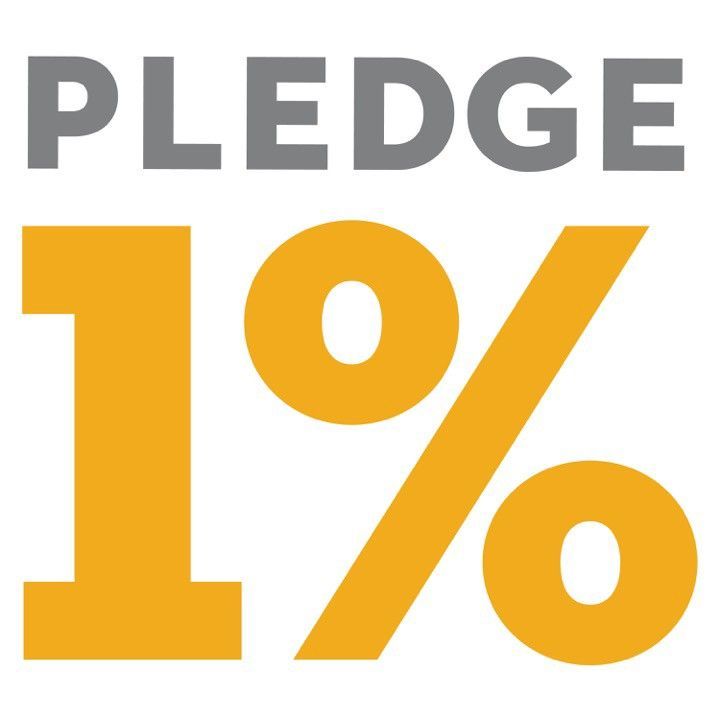
Dentem is proud to join Pledge 1%, a global movement creating new normal where companies of all sizes integrate giving back into their culture and values. Pledge 1% empowers companies to donate 1% of product, 1% of equity, 1% of profit or 1% of employee time to causes of their choice. Dentem is excited to join Pledge 1%’s network of founders, entrepreneurs and companies around the globe that have committed to giving back.
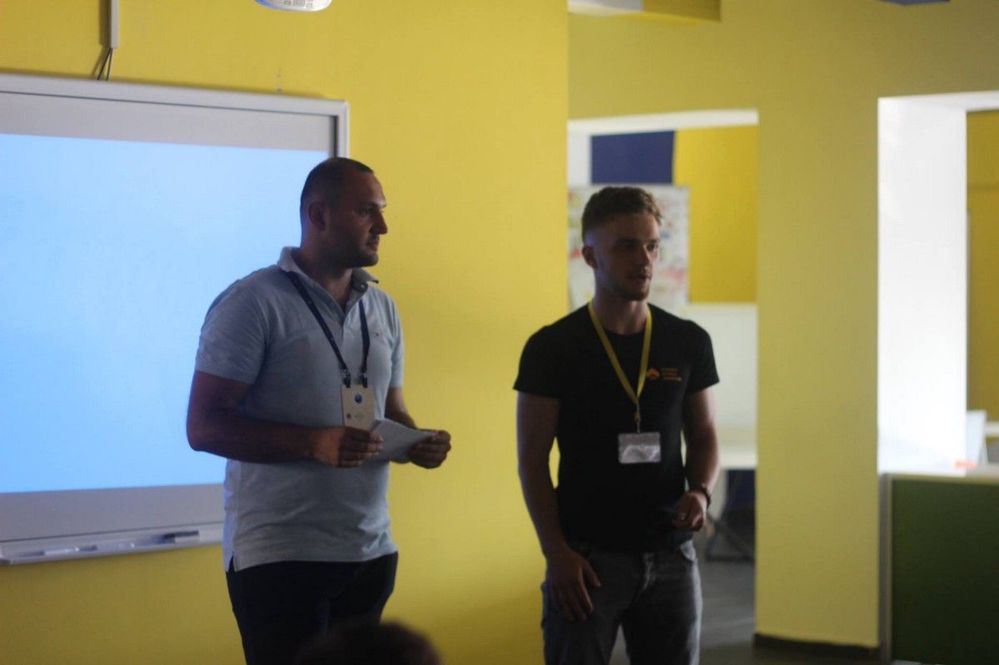
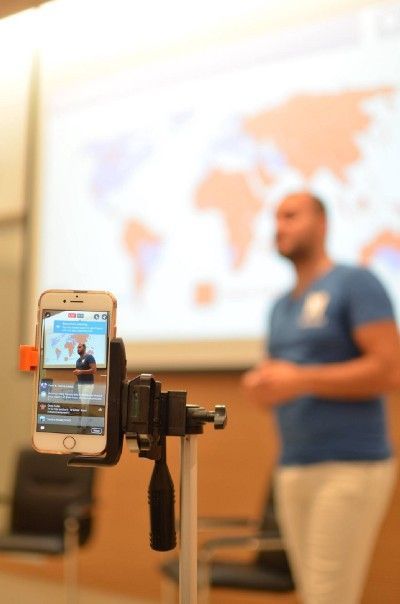
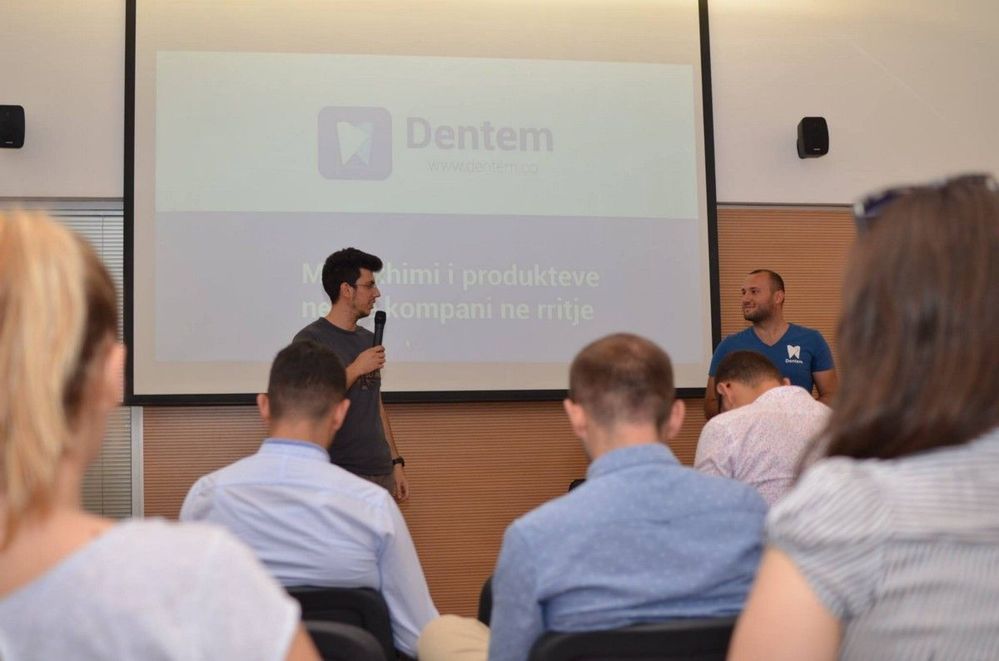
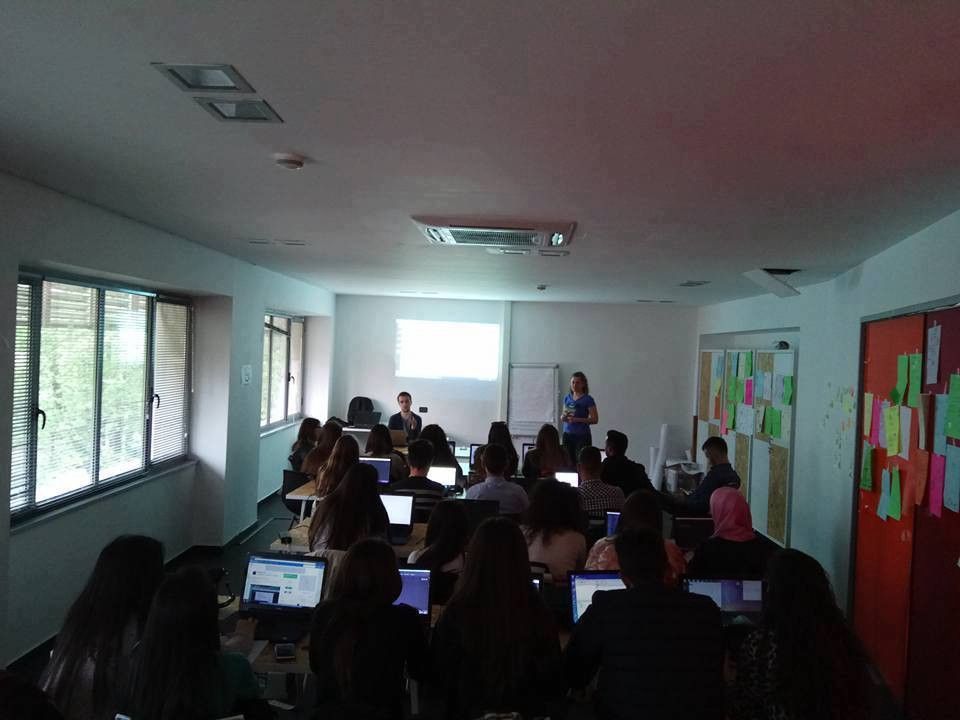
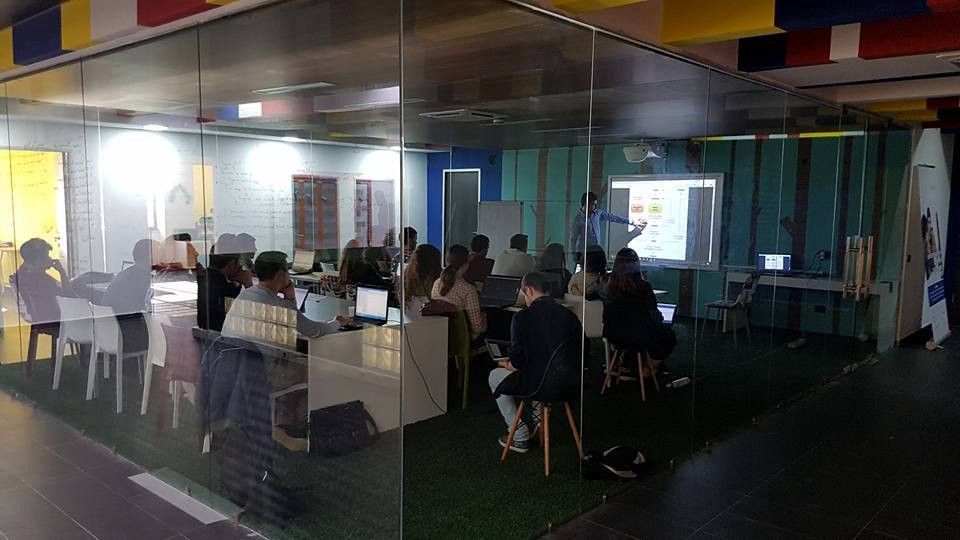
Arnold Schwarzenegger once said in a speech in front of university students “Call me anything, but never call me a self made man!” and he was right about one thing. None of us individually or as companies are self made. We work hard but together with the help of the people that support us we grow and get better.
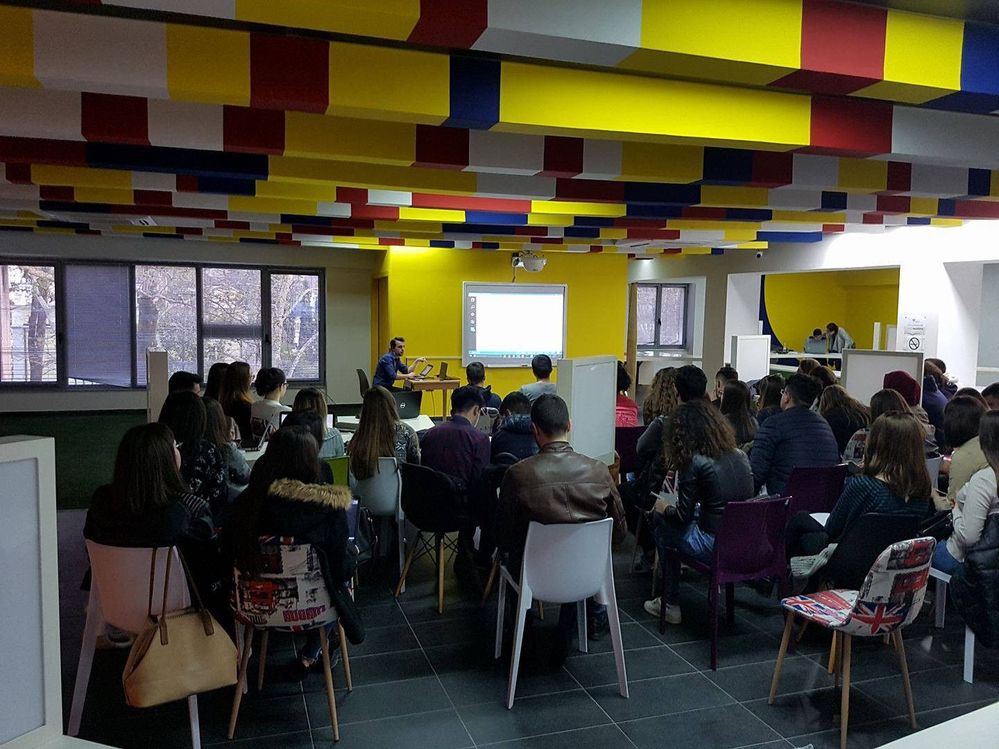
Since our early days we thought of giving back to the community a little bit of ‘us’. Our time, our help in product and our support. As of late we have helped hundreds of young developers get into coding and tens of new entrepreneurs think of starting up. But we are not even stopping here. We are helping more and more developers and young boys and girls get into coding to one day become better developers and join great companies in their future. And as well help new startup founders with our network and advice. And to top it all of we are thinking of giving back more with product and health.
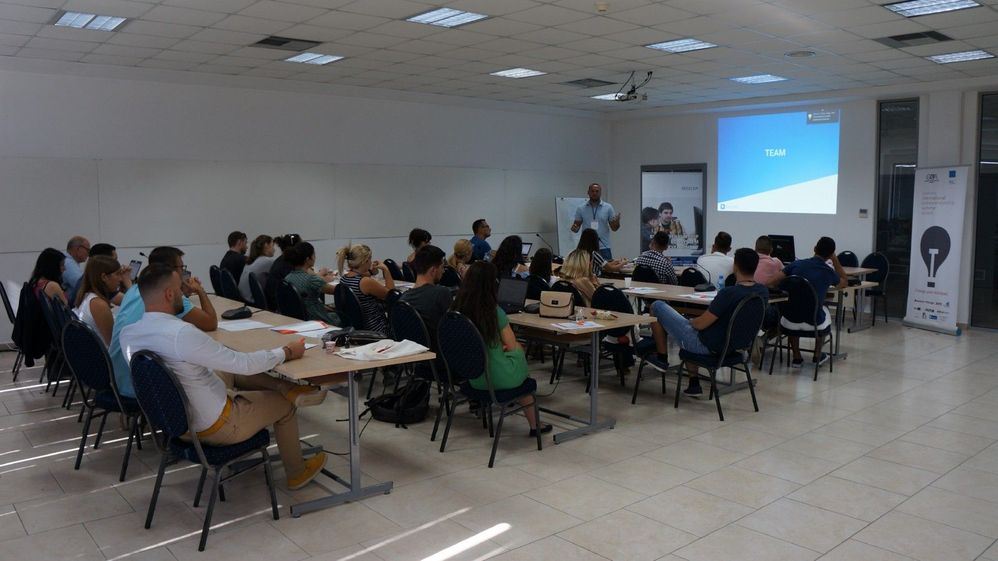
We are drafting a clear action plan to how we can give back something that will last long and create a meaningful impact in a lot of people lives. Stay tuned fore more.
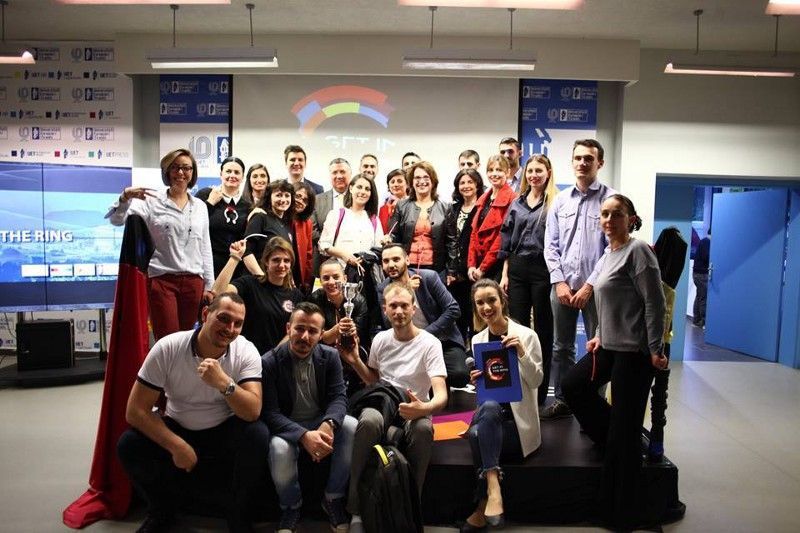
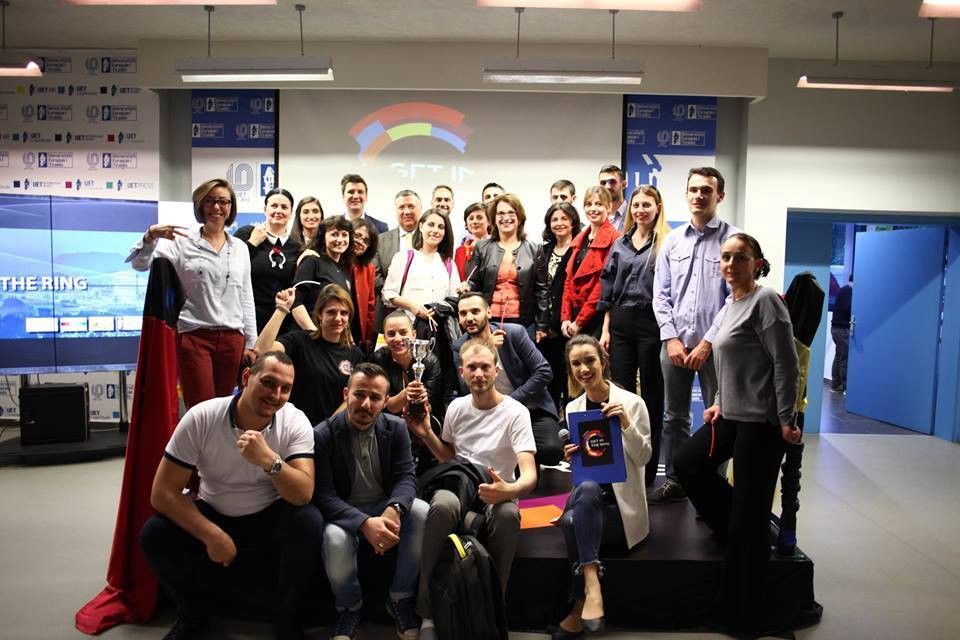
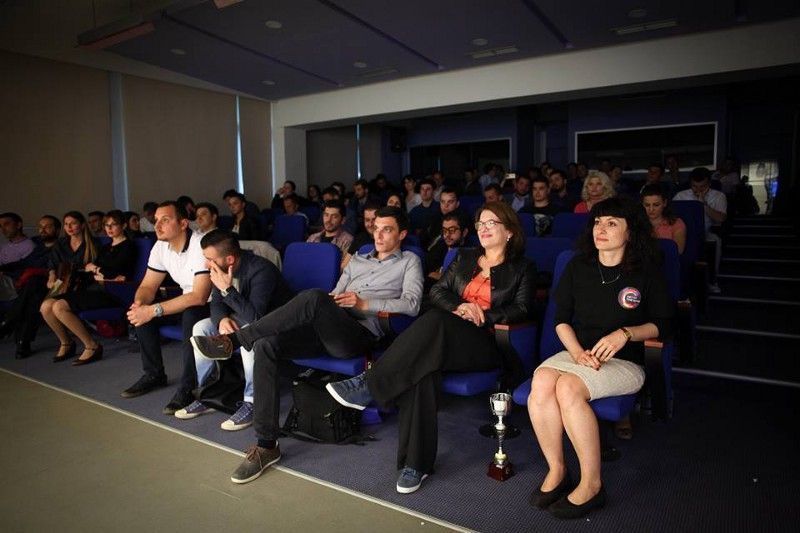
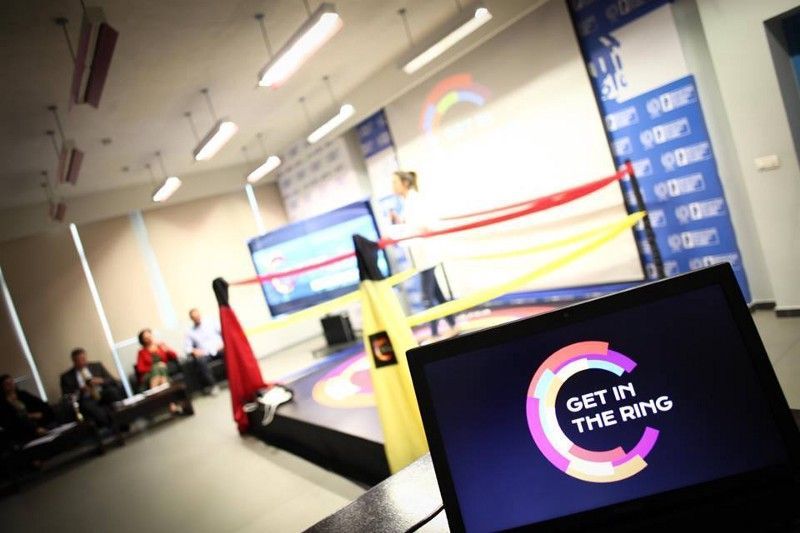
We urge all companies young and old. Big and small to join this great movement. http://www.pledge1percent.org/
#TeamDentem #PledgeOne #GivingBack

The below letter was originally published on the Rapunzl Investments blog.
Greetings,
I am pleased to announce the launch of Rapunzl Cares – a social outreach initiative dedicated to promoting financial literacy and entrepreneurship education in under-resourced communities. By exposing students to investing and breaking down the stock market (which transacts over $40 trillion every year) into digestible content, we knock down barriers which many may have believed to be insurmountable.
Our company’s inspiration for community outreach has existed since our inception. Although, a basic understanding of the financial markets relies upon math we are exposed to in secondary school, financial markets are viewed as dauntingly complex and difficult to navigate. In an era of unprecedented access to information, we see this as an issue, with a solution.
We are excited to announce a formal partnership between Rapunzl Cares and UrbanX Learning, a Chicago-based nonprofit organization dedicated to eliminating the opportunity gap for high school youth by providing educators, students and families access to breakthrough innovation.
How Did This Happen?
Since 2016, I have served on UrbanX’s Associates Board and could not be more thrilled to partner with a more inspiring organization. Their mission to eliminate the opportunity gap for low-income students by expanding access and exposure to meaningful opportunities, thus breaking the cycle of poverty resonates with me personally. How does UrbanX transform communities and classrooms?? By providing professional development support to educators and tuition-free blended learning summer immersion programs at the University of Chicago’s Charter School and Earvin “Magic” Johnson’s Bridgescape.
So where does Rapunzl Cares play into their vision?
UrbanX knows that ‘you can’t be what you can’t see’: students need to visualize themselves at college and in the workforce, to believe there is a path to success. We believe the same can be said about investing. The stock market is a portal to the world and we must see companies for more than a share price before we invest in them.
In order to understand Facebook’s market valuation, you have to understand the intersectionality of big data, advertising, and the promise of their recently acquired virtual reality companies. When you examine Amazon, we are inevitably introduced to career paths dedicated to coding and logistics; when we delve into Home Depot’s profit margins, we must understand the place of commodities in the overall economy. When we look to invest in Boeing, we first understand airplane costs, the upcoming pilot shortage due to low wages, and arrive at the understanding of an industry.
Ultimately, the stock market is the world in numbers. It can enlighten and empower individuals to see just how much opportunity is in the world; jobs that students have never heard of defining our economy, career paths that don’t materialize because students were not exposed.
We founded the company on the idea that the high returns of Wall Street are trapped in an ivory tower. A tower which the ordinary person cannot scale alone. UrbanX sees the same gap we saw with financial markets, except with student achievement being dictated by zip code, gender, and ethnicity. We are united in a mission to fix a system that controls access and to explore opportunities to improve our community.
Together, we are launching a blended learning program that will guide students and educators view the world through a financial lens.
I.P.O. – Idea, Product, Opportunity – is built on a simple premise: everyone has an idea. However few know how to build a business. IPO takes students from inspiration to opportunity through understanding the stock market, and the ways in which it connects the world. We provide meaningful resources that are intuitive, engaging and take the onus away from educators to know the right answers. It’s our mission to show every class that opportunities abound: that we are powerful in numbers and smarter, together.
I look forward to growing Rapunzl Cares into a transformative source of financial literacy programming. If anyone has comments, suggestions, or synergies to explore, please do not hesitate to reach out.
Until then, all the best,
Myles Gage
COO & Director of Rapunzl Cares
Pledge 1% is thrilled to partner with Bessemer Venture Partners, Forbes and Salesforce Ventures for their Cloud 100 event, which honors the top 100 private cloud companies in the world. Cloud 100 Pledge 1% members have had incredible impact- donating their time, product, and profits to their communities. To recognize this, we formally launched the Pledge 1% Impact Award to recognize one company who has gone above and beyond in leveraging their time, talent, money, and resources to make a difference. We are thrilled to share that the 2017 Pledge 1% Impact Award winner is DocuSign.

DocuSign IMPACT is committed to harnessing the power of DocuSign’s people, products, and profits for good. Their goal is to make a difference in the global communities where their employees and customers live and work. In addition, they match employee donations to qualifying 501(c)(3) organizations and global equivalents.
We congratulate all Pledge 1% companies for making this year’s Cloud 100 list. You can learn more and view the full list here.

By Ron Miller. Originally published in TechCrunch.
If a startup founder could peer 8 years into the future and see a company that has become the symbol for disruptive culture, one that has raised over $8 billion on a valuation of $67 billion, that has a worldwide presence in hundreds of cities, millions of app downloads,12,000 full time employees and thousands more working for your service, chances are they would start it.
Every startup founder craves success, but the question is, how far are you willing to go to achieve that success. Uber is the company that generated those heady results, but it did so at a cost. After months of one scandal after another at Uber, CEO Travis Kalanick stepped down last week.
The takeaway for startup founders should be that culture matters as much, if not more, as a good idea and some funding — and you need to start thinking about this from your earliest days.
Who are you? Who? Who?
Under the leadership of Kalanick, Uber appears to have chosen ‘The Lord of The Flies’ as its cultural roadmap, and it’s a cautionary tale that startup founders everywhere need to contemplate as they build their companies. What kind of value system do you hope to cultivate? Do you want to have a no-holds barred approach that leads to bullying, harassment and grossly inappropriate behaviors, or do you want to build a legitimate meritocracy where the best ideas and the most talented people are rewarded?
It doesn’t seem like this should even be a question, but it’s something the core first group of employees need to define early on, encouraging positive internal values. It’s not something that develops by accident.
As we’ve seen, an aggressive cultural strategy can lead to a toxic work environment in which the more powerful people in the organizations (the managers and executive team) hold an inordinate amount of power over employees and that leads to the kind of gross abuses we heard about at Uber.
Let this be a lesson, kids
It would be a mistake to think that Uber stands alone as some sort of isolated case. It’s not. Last year, fast-growing human resources firm, Zenefits, which had raised over $583 million — including a whopping $500 million on a $4.5 billion valuation in 2015 — ran into serious trouble when the company was accused of selling health insurance in several states without a license and building pernicious culture.
In a matter of a few days, CEO and company founder Parker Conrad and head of sales Sam Blond resigned under a cloud of scandal. To be fair, the company has tried to move on from this, but it was yet another example for startups everywhere that culture matters.
Need further proof? There are many cases including Whitney Wolf’s sexual harassment lawsuit at Tinder that resulted in the suspension of co-founder Justin Mateen and eventually co-founder and CEO Sean Rad leaving his post (although he stayed on as a board member and president).
Each of these cases, and unfortunately, many more like them, show that if you cut corners and fail to cultivate a positive culture, it eventually catches up with you, no matter how successful you may be in the short term.
They’ve got to be carefully taught
Freada Kapor Klein
Freada Kapor Klein of Kapor Capital, who along with her husband Mitch Kapor, was an early investor in Uber, has publicly criticized the company’s culture. She says, the time to think about building a positive culture is at the earliest stages of forming the company.
“It’s almost impossible to overemphasize the importance of intentionally building a positive culture from the start. Finding time to articulate values, principles and how you want to be known is critical. There’s always too much to do, but retrofitting culture or diversity and inclusion in a big company is much harder,” Kapor Klein told TechCrunch.
“It’s almost impossible to overemphasize the importance of intentionally building a positive culture from the start.” — Freada Kapor Klein
Steve Herrod, who was an early employee at VMware and today is the managing director at venture capital firm General Catalyst, says this is a topic that is top of mind and something the partners at GC always talk about when evaluating whether to fund a startup.
“A substantial part of our investment decision, especially at Series A, goes into assessing the values and style of the founders,” Herrod told TechCrunch. “We have passed several times when we sensed a founder was cutting corners, overly exaggerating achievements, bragging too much, or indicating any form of moral ambiguity,” he said.
General Catalyst goes even further to ensure a startup is building a positive culture by having one partner who is entirely focused on team assessment and development. “[This partner] joins the lead partner in ongoing assessments of our startups with a particular eye to cultures trending negatively. We [also] have a stable of coaches and other development resources that we can bring to bear when needed,” Herrod said.
Thinking ahead
Kapor Klein says culture needs to be front and center as part of the business plan. “Companies set business goals all the
time. They use these goals to check their progress and hold themselves accountable to the metrics. If a company is not taking the same approach to culture then they’re showing you that they aren’t taking it as seriously as they take other business goals,” Kapor Klein explained.
“If these aren’t genuine concerns of the founders, there will always be a disconnect between what’s stated and what’s practiced. That gulf between words and actions is the quickest way to create distrust and cynicism,” she added.
Danny Crichton, a NYC investor in early stage companies, agrees it’s something that needs to be foundational for the company. “It’s mostly just thinking about it from the earliest possible moments. And to start with the right cultural thinking. Ultimately culture is an extension of the founder. Uber’s culture [was] Travis Kalanick,” Crichton said.
“Ultimately culture is an extension of the founder. Uber’s culture [was] Travis Kalanick,” — Danny Crichton, startup investor
Crichton says if you don’t think about it early on, it gets harder to change as you grow. “It’s very difficult to undo a negative culture. And the problem is that once culture gets baked in, it’s basically done. I think nothing will really repair it, but we’ll see,” he said.
Kapor Klein sees it not being so much about the organization as the people in charge, and the more ingrained the negative culture, the harder it’s going to be to change. “Cultures don’t spin out of control—people do. If the core culture is sound, it can be reinstilled. If the core culture caused the problems, it’s a longer, messier process of rebuilding. Sometimes we just need guardrails, sometimes we need a complete overhaul,” she said.
Taking a positive approach to culture
Salesforce CEO Marc Benioff
There are examples of highly successful companies achieving growth and building a positive internal culture. The two don’t have to be mutually exclusive.
A prime example is Salesforce, a company currently on a $10 billion run rate, which very early on decided to be as intentional about the company culture as they were about their products and how they would go to market.
“We believe that culture cannot be left to chance; it must be deliberate, measured and consistent from day one,” Cindy Robbins, Executive Vice President of Global Employee Success at Salesforce told TechCrunch.
“We believe that culture cannot be left to chance; it must be deliberate, measured and consistent from day one.” — Cindy Robbins, Executive Vice President of Global Employee Success at Salesforce
For Salesforce, it’s about putting together culture, technology and data as a formula for employee engagement, she said, and they take it even further with an integrated philanthropy model called 1-1-1. While you could dismiss all of this as PR fluff, the company has devoted thousands of hours to community service and donated or discounted software to non-profits , and according to the company website, has given more than $160 million in community grants over the years.
Further, it has attempted to eliminate the gender pay gap at Salesforce and last year hired Tony Prophet as the company’s first chief equality officer to bring equality issues to the forefront of the company. The company has also exported the 1-1-1 model through the Pledge 1% program and 2000 companies are following a similar program including Appirio, Box, DocuSign, Glassdoor, Optimizely, Twilio, Xactly, Yelp and Zuora.
Startups behaving well
Graphic: Bryce Durbin/TechCrunch
As much as the negative examples of culture get the vast amount of attention, there are plenty of people working hard to build a positive culture and a solid business.
While Salesforce is a long established company, Clef, an identity startup launched in 2013, that became part of Twilio in March, put culture at the center of its hiring process, and went so far as to create a handbook, which it then “open sourced” for others to use. Founder B Byrne put it this way when he wrote a blog post in 2015 announcing the company was open sourcing the handbook:
“Building a company is hard. Building a company that prioritizes inclusion in an industry that doesn’t is even harder. Both this handbook and our company are a long way from perfect, but this is a start. One of our values is to be better today than yesterday, and we’re excited to have help making this core part of our company better,” he wrote.
Another company trying to do it differently is Trivago, the German hotel search site, which claims to be building the company to be a meritocracy where no single person has total power over another person’s career.
“Removing workplace politics/stereotyping bias from decision making should be the focus. Individuals should not have to worry about these coming into play when it comes to their personal growth and development within the company,” Trivago CFO Axel Hefer told TechCrunch.
While Rolf Schrömgens, CEO and founder at Trivago admits that it really wasn’t something they thought about right away, as the company grew, the earliest employees began to recognize they needed a system in place to ensure a positive cultural approach, especially with a diverse staff from all over world.
“It was less an active decision that we made in the beginning, and more of a necessity that we realized over time. If you want to keep your company constantly learning, if you want your organization to stay liquid and have decisions [made] fast, if you believe in the superiority of intrinsic motivation, then you have to realize a culture of trust, respect and authenticity is the only way to go,” Schrömgens explained.
Nobody’s perfect
Trivago reports a male/female employee split of 58.2% to. 41.7% with over 50 nationalities working at the company’s Düsseldorf, Germany headquarters.
It’s worth noting that Glass Ceiling reviews of the company don’t paint quite as rosy a picture of the company’s culture as the company’s executives, especially when it comes to advancement opportunities and salary.
Still, Trivago has nearly doubled its stock price since it went public last December growing from an IPO price of $11.85 to $20.86 this week. Salesforce, which has been around since 1999 and went public in 2004, has a market cap of almost $63 billion and it’s stock price has grown steadily over the last five years from $34.28 in June 2012 to $86.82 this week, proving at least for these companies that a positive culture and positive business results can go hand in hand.
It shouldn’t be about the money though, it should be about doing the right thing by your employees, and the financial success should follow.
In fact, there is no perfect approach to culture, but we know that setting goals around compassion, diversity, charity, a willingness to share ideas, while providing mechanisms for all employees to grow and be appreciated — all of these things make for a more positive culture.
That clearly seems to be a better approach than a noxious culture. As we’ve seen repeatedly, that cultural approach eventually catches up with a company. Surely, Uber’s case (and others) should be a lesson for every startup that it’s better to start that process of building a positive culture from day one — and not have to go back and fix it or retrofit it down the road.
FEATURED IMAGE: RAWPIXEL/SHUTTERSTOCK (IMAGE HAS BEEN MODIFIED)